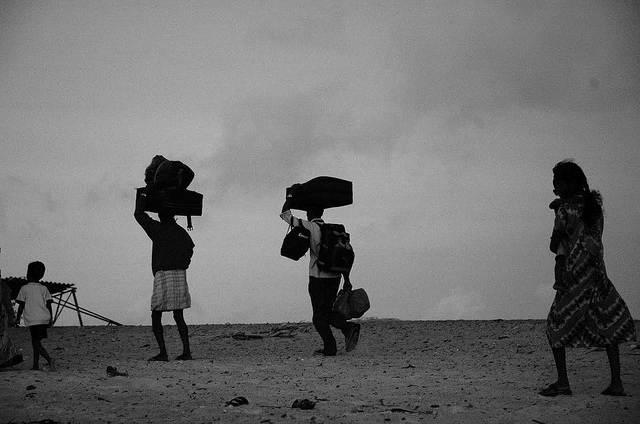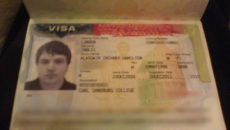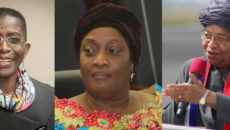In January 2006, after the swearing-in of Liberian President Ellen Johnson Sirleaf—the first woman elected to be president of any African country—the hope of many Liberians after years of civil turmoil was anchored to her education; experience; international leverages; and political, economic and social ability.
Liberians thought President Sirleaf could help create tons of jobs and business opportunities for generations of workers. But many Liberians are still waiting to experience what it means to be gainfully employed: earn their own money and live a decent life while contributing to the growth of their country.
Dozens of companies invested in Liberia and made agreements through a Mineral Development Agreement to create tons of jobs. However, Liberia remains among the poorest countries in the world.
A global financial crisis affected many of these companies’ operations in Liberia, leading to downsizing and restructuring measures. With this in mind, what will U.S. President Donald Trump’s administration and its policies bring to Africa and Liberia?
Liberia is an aid-dependent country. A good portion of the national budget is supported by foreign assistance from USAID and other international partners that support global peace, assist security and development efforts, and provide humanitarian relief during times of crisis.
For the fiscal year 2017, USAID has a total worldwide budget of US$34 billion. If direct or indirect foreign aid is reduced under the Trump administration, it will affect all sectors of the Liberian economy, making it difficult for the government, which is dependent on foreign aid, to survive and create jobs for its citizenry.
The national budget for Liberia for fiscal year 2016–2017 is estimated at US$600 million and will be generated from five main revenue sources: core revenue of US$525 million; grants of US$30 million; contingent revenue of US$5 million; borrowing of US$38 million; and money carried forward of US$2 million.
USAID and other international organizations contribute significantly to direct and indirect support of Liberia; any reduction in assistance from USAID and other international NGOs under the Trump administration will have an adverse effect on the economy.
If the direct supplements by international organizations, including USAID, are not raised to support the national budget for fiscal year 2016–2017, the Legislature has the right by law to impose taxes on goods and services to balance the budget. The Liberian government has already begun implementing this measure, increasing taxes even though this increases the cost of living for Liberians and increases business operation costs in the country. There have already been strikes by business owners protesting a tax increase on all commodities, including phone calls and Internet data.
When Trump won the U.S. presidential election, President Sirleaf said she was concerned that he would not engage with Africa to the same degree as previous U.S. presidents have. Previous U.S. administrations have supported Africa in numerous projects that created jobs.
The George W. Bush administration created the U.S. President’s Emergency Plan for AIDS Relief. Concentrated in sub-Saharan Africa, it is one of the world’s biggest health projects aimed at fighting the global AIDS epidemic by providing antiretroviral treatment for people who are HIV-positive.
President Barack Obama held the first-ever U.S.-Africa Leaders’ Summit in 2014, convening 50 African presidents to Washington, D.C., for talks, and propelled a US$7 billion investment in 2013 to help provide electricity in sub-Saharan Africa. Obama also provided significant support to West African countries, including Liberia, in dealing with the outbreak of the Ebola virus.
President Trump’s determination that he will renegotiate trade deals could also influence long-standing regulations such as the African Growth and Opportunity Act, a preferential trade agreement between selected African countries and the U.S. that was renewed by Congress in 2015.
The United States is the mainstay of global health aid, contributing billions of dollars annually—more than any other country—to combat disease in the poorest countries of the world. But as the fight against AIDS, tuberculosis and other diseases hangs in the equilibrium, health experts, regime officials and activists for the poor say they have no idea what policies Trump will implement. He has rarely talked about global health issues.
For now, many of the leadership posts dominant to the global health mission, such as in USAID and the Centers for Disease Control and Prevention, are still in the hands of Obama administration appointees. (USAID oversees the money to fight AIDS, tuberculosis, malaria and vaccine-preventable diseases.)
As of now, all U.S. assistance is based on grants as an alternative to loans. African governments have had more and more of a significant voice in developing these programs. For example, the Young African Leaders Initiative attracted 2,000 of Africa’s best and brightest to the U.S. for leadership training and meetings with Obama and senior officials. The Young African Leaders Initiative has an online network of 300,000 young professionals and showcases the type of cooperation the U.S. has forged in recent years. It is uncertain whether this commitment will be sustained by President Trump, even though it would be in U.S. interest to do so.
In fact, Africans were speculating after his election whether Trump would carry out a ban on Muslims. In January, a travel ban was instituted against seven Muslim-majority countries, including Libya, Sudan, and Somalia. Africans are also speculating on whether the Trump administration will expel large numbers of African immigrants.
Will the U.S. continue to be the bearer of optimism, forger of alliances and proponent of prosperity that it has conventionally been to many countries on the continent? Furthermore, the reinstatement of the global “gag ruleâ€â€”which forbids foreign groups that receive U.S. family planning money to perform, counsel or refer women for abortion services—is a hardship for women. This rule goes a step further: It does not allow foreign groups to take money from private resources for services related to abortion either. This will have an enormous influence on funding for NGOs, employment services, and basic social services in Liberia.
The next four years promise to be a test for Liberian and African leaders to demonstrate their leadership ability and commitment to their people. They need to stand up against corruption, which will send a strong signal that it is safe to invest U.S. taxpayer monies—and that “crooked†African leaders won’t pilfer such money. African leaders also need to create more internal trade agreements and promote political stability.



